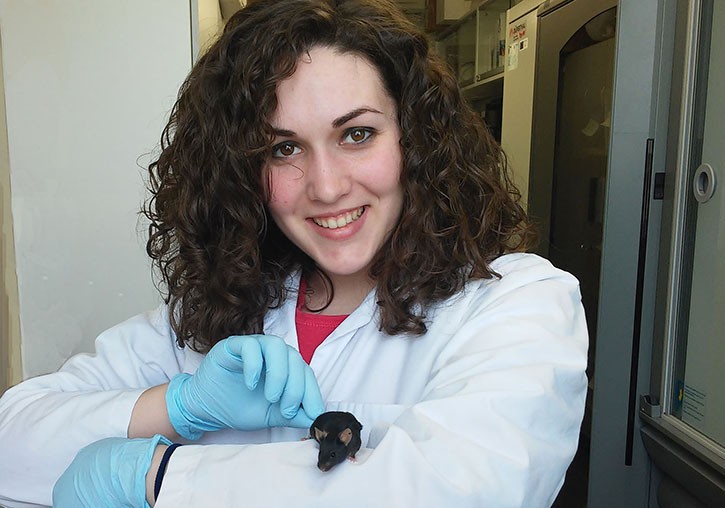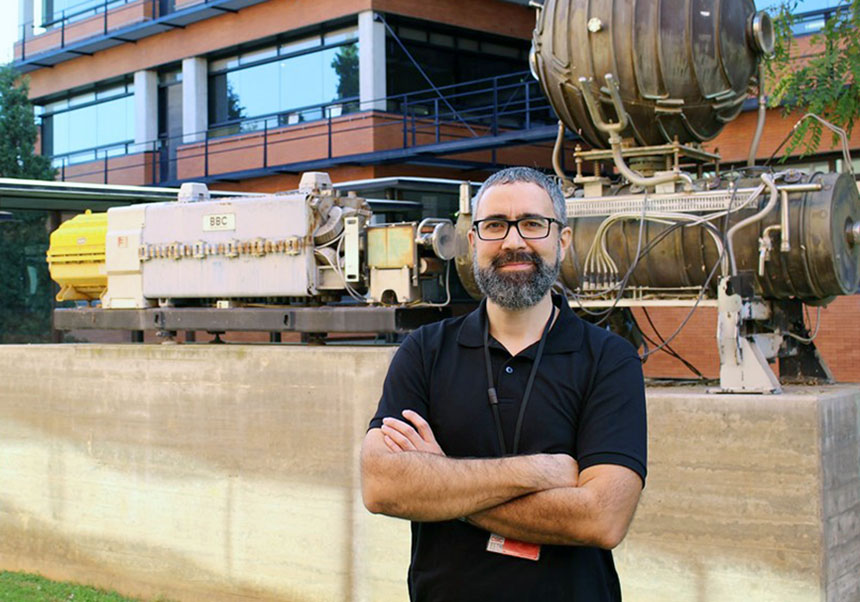Two master regulators identified in the process of creating new neural cells in the adult brain
- Science Park
- January 31st, 2023

Members of the University Institute of Biotechnology and Biomedicine (BIOTECMED) of the University of Valencia have identified two key regulators in the process of adult neurogenesis. These are the proteins p27 and MEX3a. The first protein promotes global changes in the gene expression of neural stem cells. The second protein intervenes directly in determining cellular fate. The work appears published in the journals Cellular and Molecular Life Sciences and Nature Communications, respectively.
The brain is made up of billions of neurons and an even greater number of very varied support cells, collectively known as ‘glia cells’, without which the functioning of the nervous system would not be possible. Moreover, the generation of these cells is not limited to the fetal period but continues throughout life in certain areas of the brain of most mammals, thanks to the presence of neural stem cells that are responsible for adult neurogenesis and gliogenesis.
The maintenance and operation of these stem cells require a very complex and strict molecular control, since it involves an appropriate coordination of their proliferation – to avoid exhaustion or the formation of tumours – and correct decision-making cells when generating the progenitors that will have to become neurons or glia.
A team of researchers from the University Institute of Biotechnology and Biomedicine (BIOTECMED) of the University of Valencia, led by Professor of Cell Biology Isabel Fariñas, has recently published two works that identify master molecular regulators, capable of producing global changes in cell identity and function during this decision-making process that balances stem cell maintenance and neuron and glia production in a mouse model.
The first of the studies identifies a new function of a cell cycle regulator called p27. And this protein promotes in gene expression the global changes necessary for the differentiation of neural stem cells. The discovery has been published in the journal Cellular and Molecular Life Sciences. The second article, published in the journal Nature Communications, describes the fact that large groups of messenger RNAs can be simultaneously regulated by a single factor, the MEX3a protein, drastically influencing the decision-making about cell fate during the adult neurogenesis process. Both works provide significant data for the study of the creation of new cells in the brain.
The Neuro Imprint and Neural Development groups of the same research institute, as well as laboratories from the Francis Crick Institute in London, the Complutense University of Madrid and the Institute of Biomedical Research of Barcelona.
Post-transcriptional control of a stemness signature by RNA-binding protein MEX3A regulates murine adult neurogenesis. Ana Domingo-Muelas, Pere Duart-Abadia, Jose Manuel Morante-Redolat, Antonio Jordán-Pla, Germán Belenguer, Jaime Fabra-Beser, Lucía Paniagua-Herranz, Ana Pérez-Villalba, Adrián Álvarez-Varela, Francisco M. Barriga, Cristina Gil-Sanz, Felipe Ortega, Eduard Batlle & Isabel Fariñas. Nature Communications volume 14, Article number: 373 (2023)
The rates of adult neurogenesis and oligodendrogenesis are linked to cell cycle regulation through p27-dependent gene repression of SOX2. Ana Domingo-Muelas, Jose Manuel Morante-Redolat, Verónica Moncho-Amor, Antonio Jordán-Pla, Ana Pérez-Villalba, Pau Carrillo-Barberà, Germán Belenguer, Eva Porlan, Martina Kirstein, Oriol Bachs, Sacri R. Ferrón, Robin Lovell-Badge & Isabel Fariñas. Cellular and Molecular Life Sciences volume 80, Article number: 36 (2023)

File in: Ciencias Médicas , Ciencias de la Vida















